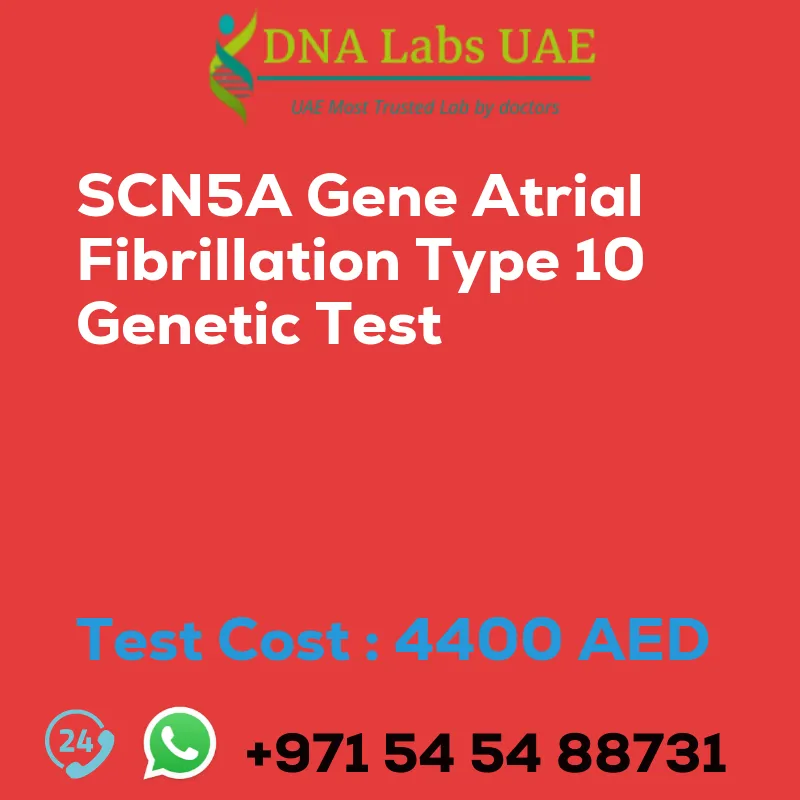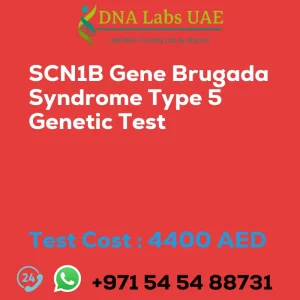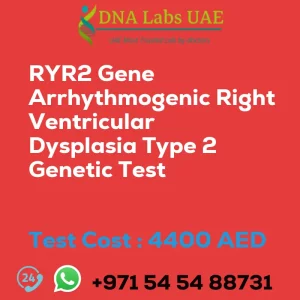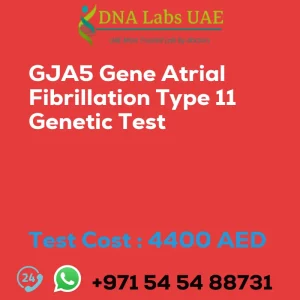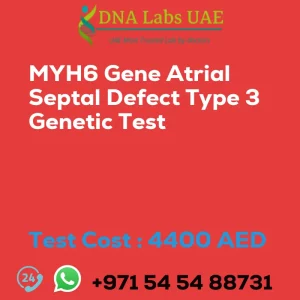SCN5A Gene Atrial fibrillation type 10 Genetic Test
Are you experiencing symptoms of atrial fibrillation? Do you have a family history of this condition? DNA Labs UAE offers the SCN5A Gene Atrial fibrillation type 10 Genetic Test to help diagnose and manage this cardiovascular disorder.
Test Details
The SCN5A gene is responsible for encoding a sodium channel protein that plays a crucial role in the electrical conduction system of the heart. Mutations in this gene have been associated with various cardiac arrhythmias, including atrial fibrillation. Atrial fibrillation type 10 refers to a specific subtype of atrial fibrillation that is caused by mutations in the SCN5A gene. This subtype is characterized by an early onset of atrial fibrillation, typically before the age of 40.
Our state-of-the-art NGS (Next-Generation Sequencing) technology allows us to analyze multiple genes simultaneously, providing accurate and comprehensive results. By identifying the specific genetic mutation causing atrial fibrillation type 10, our NGS genetic testing can help with accurate diagnosis, risk assessment, and potentially guide treatment decisions.
Test Components
- Price: 4400.0 AED
- Sample Condition: Blood or Extracted DNA or One drop Blood on FTA Card
- Report Delivery: 3 to 4 Weeks
- Method: NGS Technology
- Test Type: Cardiovascular Pneumology Disorders
- Doctor: Cardiologist
- Test Department: Genetics
Pre Test Information
Before undergoing the SCN5A Gene Atrial fibrillation type 10 NGS Genetic DNA Test, it is important to provide the clinical history of the patient. Additionally, a genetic counseling session will be conducted to draw a pedigree chart of family members affected with SCN5A Gene Atrial fibrillation type 10. This will help us better understand the genetic pattern and inheritance of the condition.
Benefits of the Test
Our SCN5A Gene Atrial fibrillation type 10 Genetic Test offers several benefits:
- Accurate diagnosis of atrial fibrillation type 10
- Risk assessment for the patient
- Guidance for treatment decisions
- Identification of at-risk family members
- Appropriate monitoring and management strategies for family members
Don’t let atrial fibrillation type 10 go undiagnosed. Take control of your health with the SCN5A Gene Atrial fibrillation type 10 Genetic Test from DNA Labs UAE. Contact us today to schedule an appointment with our experienced cardiologist.
| Test Name | SCN5A Gene Atrial fibrillation type 10 Genetic Test |
|---|---|
| Components | |
| Price | 4400.0 AED |
| Sample Condition | Blood or Extracted DNA or One drop Blood on FTA Card |
| Report Delivery | 3 to 4 Weeks |
| Method | NGS Technology |
| Test type | Cardiovascular Pneumology Disorders |
| Doctor | Cardiologist |
| Test Department: | Genetics |
| Pre Test Information | Clinical History of Patient who is going for SCN5A Gene Atrial fibrillation type 10 NGS Genetic DNA Test. A Genetic Counselling session to draw a pedigree chart of family members affected with SCN5A Gene Atrial fibrillation type 10 NGS Genetic DNA Test gene SCN5A |
| Test Details |
The SCN5A gene is responsible for encoding a sodium channel protein that plays a crucial role in the electrical conduction system of the heart. Mutations in this gene have been associated with various cardiac arrhythmias, including atrial fibrillation. Atrial fibrillation type 10 refers to a specific subtype of atrial fibrillation that is caused by mutations in the SCN5A gene. This subtype is characterized by an early onset of atrial fibrillation, typically before the age of 40. NGS (Next-Generation Sequencing) genetic testing is a type of genetic test that uses advanced sequencing technology to analyze multiple genes simultaneously. In the context of atrial fibrillation type 10, NGS genetic testing can be used to identify mutations in the SCN5A gene that may be responsible for the condition. By identifying the specific genetic mutation causing atrial fibrillation type 10, NGS genetic testing can help with accurate diagnosis, risk assessment, and potentially guide treatment decisions. It can also be useful for identifying other family members who may be at risk of developing the condition and provide them with appropriate monitoring and management strategies. |

